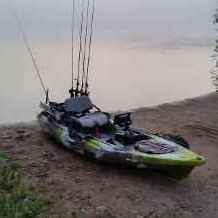First, we should understand that the notion of a "hard summer bite" is really more about angler success than about bass' actual feeding behavior.
Bass tend occupy locations in the summer that are simply more difficult to get at than in spring and fall -- they may scatter, or go deep or bury themselves in heavy slop. The bite may seem difficult because presenting lures to them successfully is more difficult.
In the southern parts of the country, water temperatures during the day regularly exceed optimal temperature feeding activity and growth, which is the low 80s farenheit for largemouth. Levels of dissolved oxygen may also drop, especially in stagnant areas, which further suppresses bass activity. Thus, anglers who live in the South and fish during the day will likely experience some reduced angling success. Meanwhile, the bass may be feeding mostly night on the abundant summer forage, when it is cooler and they have a hunting advantage.
In the Northern parts of the country, our water temps do not get far above optimum level in most places, and for very long. As long as one can present lures properly to high-quality shallow cover (like pads and docs), and to the deep weedline, one can experience a consistent bite all summer (although larger fish are still a challenge to find consistently).
And in rivers where there is consistent current, the bite can be positively on fire during the hottest times of the summer, especially for smallmouths.
So there isn't really an inconsistency, there are just mitigating factors.





